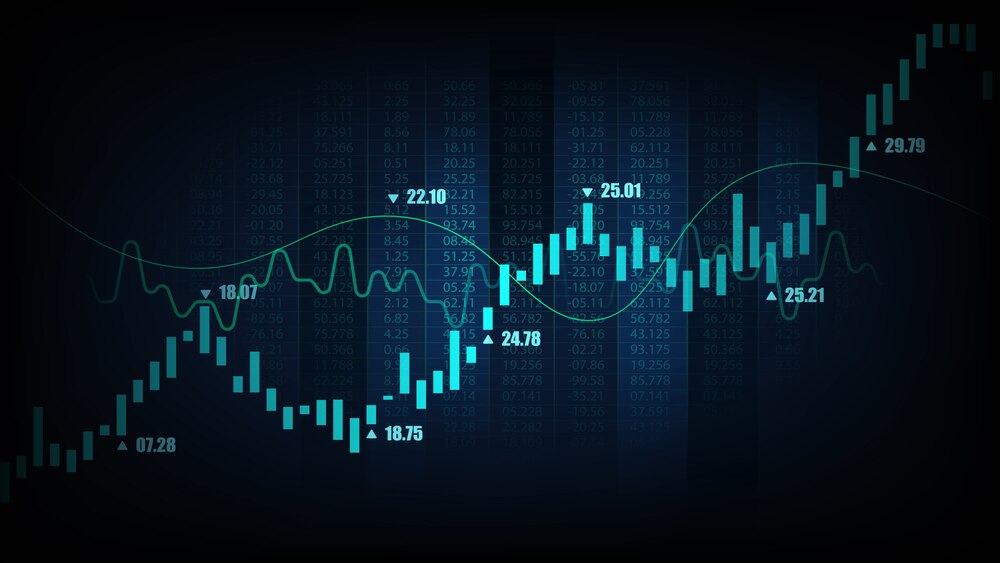Impact of Middle East War on the Stock Market: Oil Prices, Volatility & Global Reactions in 2025
Introduction: Geopolitical Hotspot of 2025
Midway through the year 2025, a series of tensions incidentally involving Israel, Iran and U.S. led to the suspicion of a wider conflict coming up in the Middle Eastern region. This kind of a crisis is quite likely to cause turbulence in the market, although the effects of this crisis on the stock prices, oil prices and psychology associated with the market are not straight forward. The 2025 scenario, in comparison to the historical oil shocks, spills more colors of the present and rejected markets that are linked closely worldwide.
The Way the Conflict Contributed to the Increase of Oil Prices
Supply Risk Premiums Blow Off
After Israeli attacks on Iranian targets that took place in June, Brent crude rose by more than 10 percent to end between $70 and $78 a barrel. These jumps can be described as fear of supply interruptions, notably at the chokepoints such as the Strait of Hormuz.
Endangering of Major Energy Routes
It was alarming when Iran threatened to close down the Strait of Hormuz through which a considerable amount of oil was shipped and that is one of the keys to the global oil generators which is around 20 percent of world oil production. Had they succeeded, their activities would have sent the oil prices up to as high as $100-$ 150/bbl.
Market Reaction
However, as order was restored between June 24 and 25, crude oil fell approximately 6 percent and returned to two-week lows, indicating that the temporary crisis was waning. Experts observed that existing buffers in the global supply base mitigated the blow.

Impacts of Middle East War on the American Stocks Markets
Craziness and Stability
There was a brief temporary plunge in the market due to geopolitical tension, but it recovered quickly. S&P 500 gained 1.1 percent (24 June) to record highs (98.5), and oil prices fell.
Safeguard Sectors
The energy sector slipped below, with the tech sector and airlines outrunning. Technology indices were trading at record levels, confirming that the conflict had been largely shrugged off by the market.
Fed expectations
Inflation fears were reduced by lower oil prices, raising hopes about rate cuts. The hints from Fed Chair Powell of a July cut also boosted stocks.

Global Market Reactions & Safe‑Haven Flows
Flight of Capital & Currency
Increased uncertainty led to a significant shift in the U.S. dollar and a rise in the haven. Investors have sought to invest in U.S. Treasuries and gold, but bond yields have remained relatively stable, ranging from 3.75% to 4.75%.
New Markets in the Boxing Ring Emerging Markets in Trouble
In oil-importing countries such as India, the pressure on the currency and inflation rose. An example of this is the rupee of India weakened beyond 86/USD.
European Stock and Commodities
European stocks lagged in the early going, but the market impact was not significant. Risk aversion led to increased activity in the commodity markets, particularly in the gold and oil markets.

This is not a Long-Term Crash but a Short-Term Shock.
Historical Markets indicate a Bounce.
Geopolitical surprises in the past, such as the oil crises in 1973 and 1979, led to an immediate price acceleration. However, stocks recovered within a few months. Similarly, such a conflict can be anticipated to take that trend.
Professional Analysis
According to Richmond Wealth, the impact on equities is likely to be temporary. The long-run drag is not significant because only about 0.1 percent of S&P global revenue is linked to Israel and Iran. Deutsche Bank is no exception, as it mentions geopolitical reverses followed by a review.

The Major Forces are Oil, Inflation, and Policy Response.
The first Axis: Energy Inflation
Oil remains the primary driver, exerting greater pressure on prices and inflation, which prompts central banks to tread carefully due to potential spikes.
Fed Dynamics
Inflation is now under control, and the Federal Reserve will cut its rates this summer, boosted by energy costs that have fallen.
Fundamentals of Corporation Remain Defiant
The profits are high, and technological breakthroughs continue to drive markets, notwithstanding the geopolitical winds.
Scenario Analysis: What Should be Next?
1. Cease‑Fire Delivers Peace
In the event of a continued de-escalation, markets will be driven higher to the all-time highs. This situation is similar to the post-detente years.
2. Intermediary Conflict escalation
Small-scale battles can elevate oil prices by 80 to 100, which would induce inflation slightly without triggering a recession.
3. The Closure of the Strait of Hormuz
The great danger is that there may be a closure, which will push oil to 120 150 and create stagflation, and the great equities will fall.

To keep in touch with us for Daily updates on Effect Of Middle East War On Stock Market:
Also follow our social medias to be up todated about Effect Of Middle East War On Stock Market : https://facebook.com/money.mexa
FAQs: How Does the Crisis and the Market Impact?
- What was the motivation behind stock markets recovering so quickly?
Since concerns about supply had passed, inflation was reversed, and central banks had shown their support; however, corporate profits remained stable.
- What caused the explosion of the oil prices?
Geopolitical score premium through strikes and threats to key transport corridors, such as the Strait of Hormuz.
- Can oil go to 150 because of Middle East War?
Yes, in case of ship path obstructions. However, markets have remained composed.
- What are the effects of these Middle East War on the Fed decisions?
High oil prices may push up inflation and postpone rate reductions, but low energy prices are now favorable to an easy monetary policy.
- Does contemporary markets suffer from Middle East War?
Not immune, but more diversified- having their primary sources of supplies not located in the Middle East.
- When can stability be restored?
Generally, in a couple of months. Geopolitical shocks are typically followed by market recoveries, as indicated by past data.
Q6. How to explore more about Effect Of Middle East War On Stock Market ?
To get daily upadate on Effect Of Middle East War On Stock Market please visit Moneymexa.com regularly.

To sum up, it is the Time to Look at the Strait, Not Headlines.
The geopolitical influence on the market is well explained by the current Middle East conflict of 2025, whose effects are the oil price shocks and sentimental volatility. All these have however been dampened by other broader structural developments like the global sourced diversification and corporate performance. En route to the second half of 2025:
- Oil will be the most important indicator to follow, as supply could be disrupted or a route closed.
- The markets are robust, and history shows that, in the short term, they tend to dip and rebound.
- Investors are turning to fundamentals, central bank plays, and real-life risk prevention.
These forces help U.S. investors and savers move forward with their dynamism.
To keep in touch with us for Daily updates on Effect Of Middle East War On Stock Market:
Also follow our social medias to be up to dated about Effect Of Middle East War On Stock Market : https://facebook.com/money.mexa

